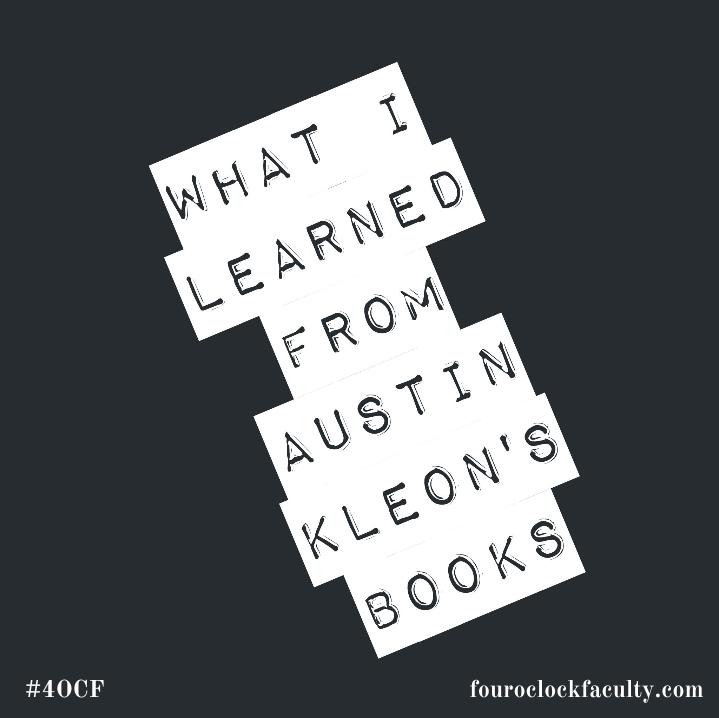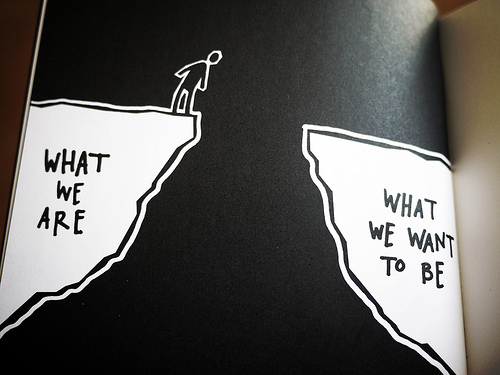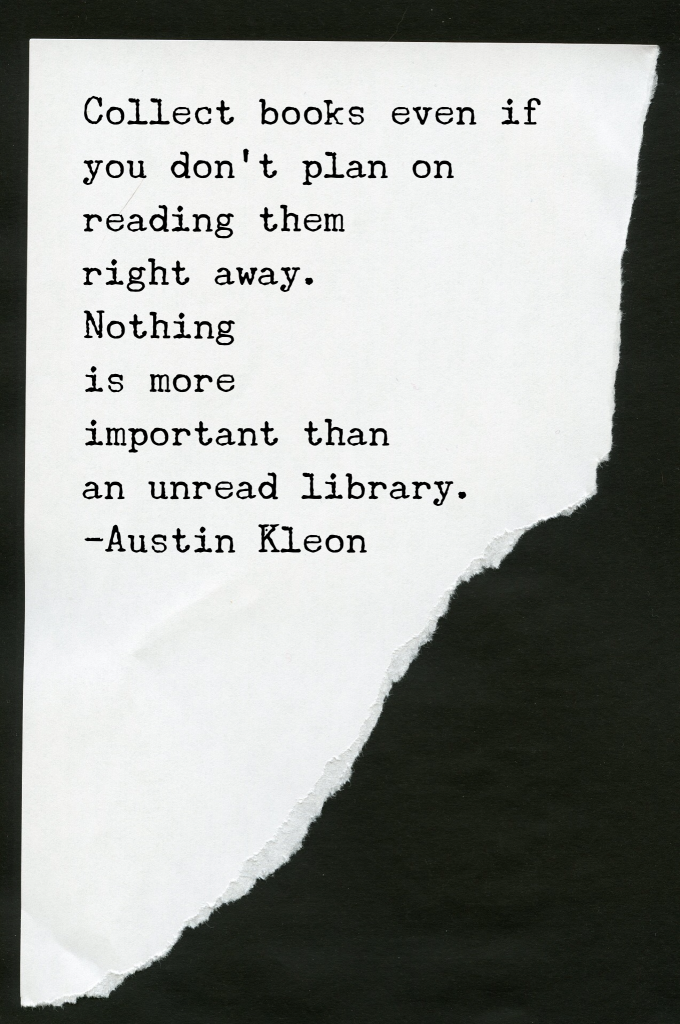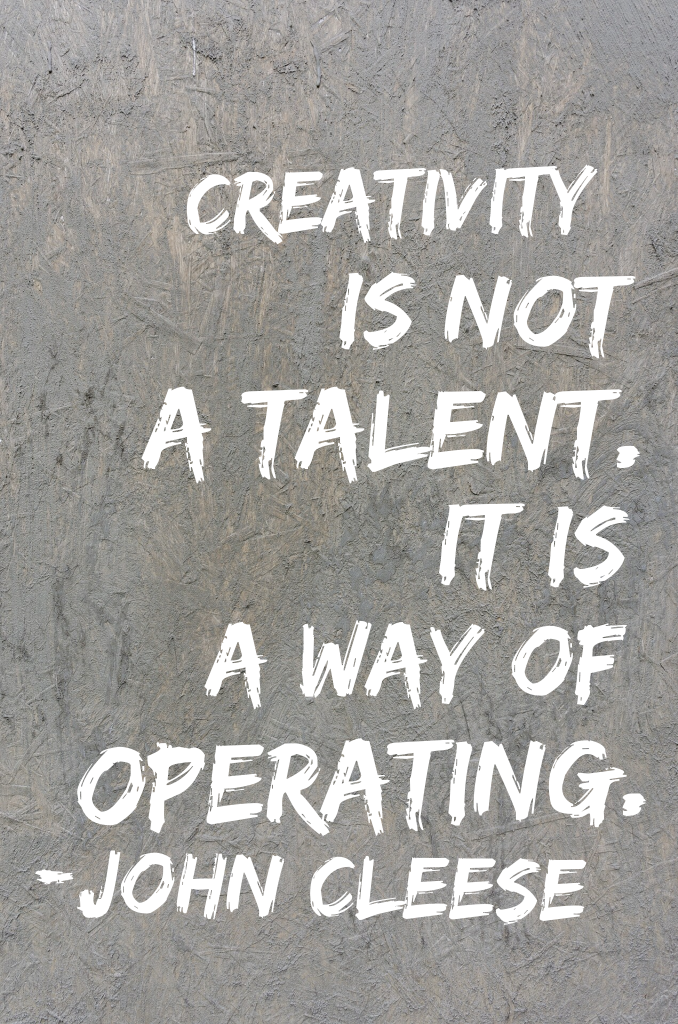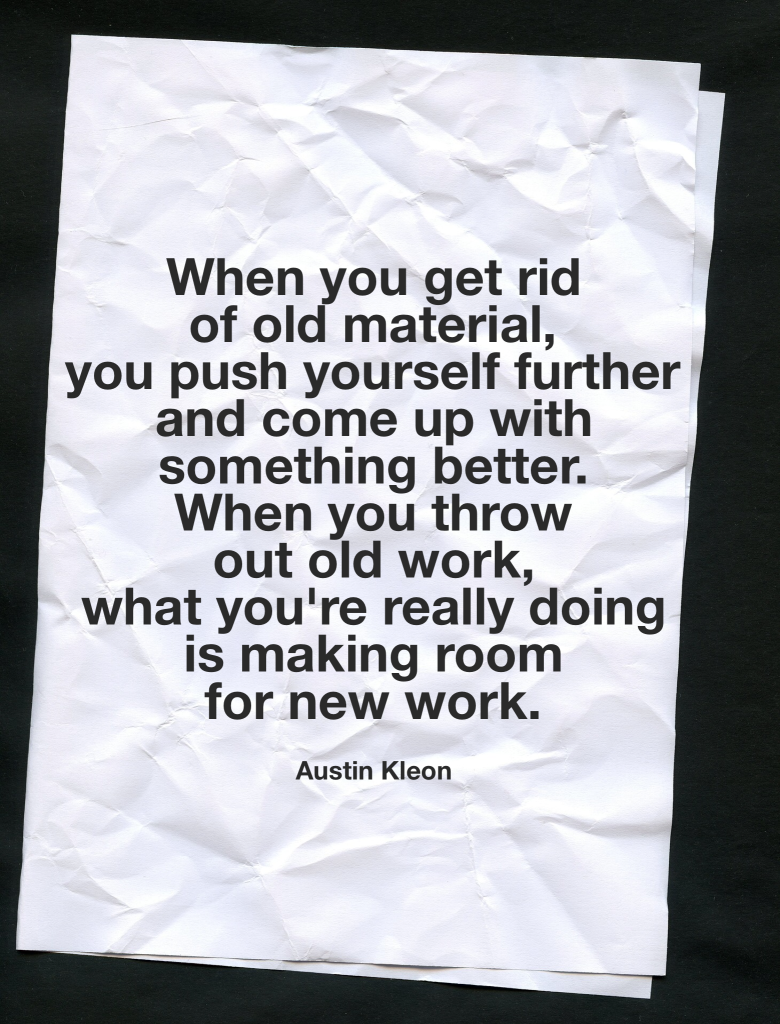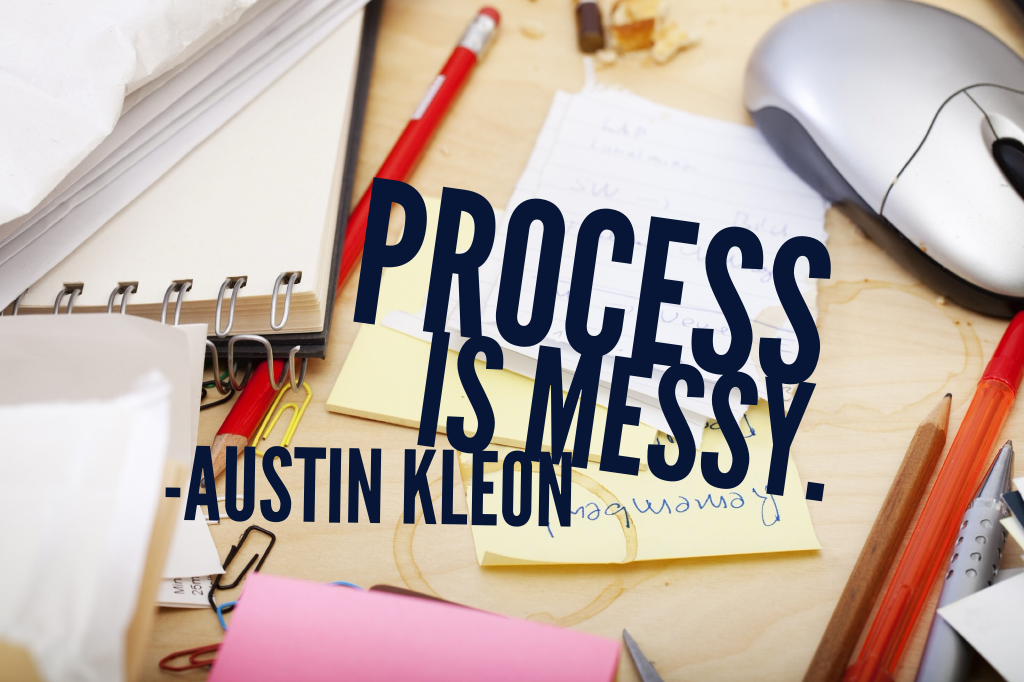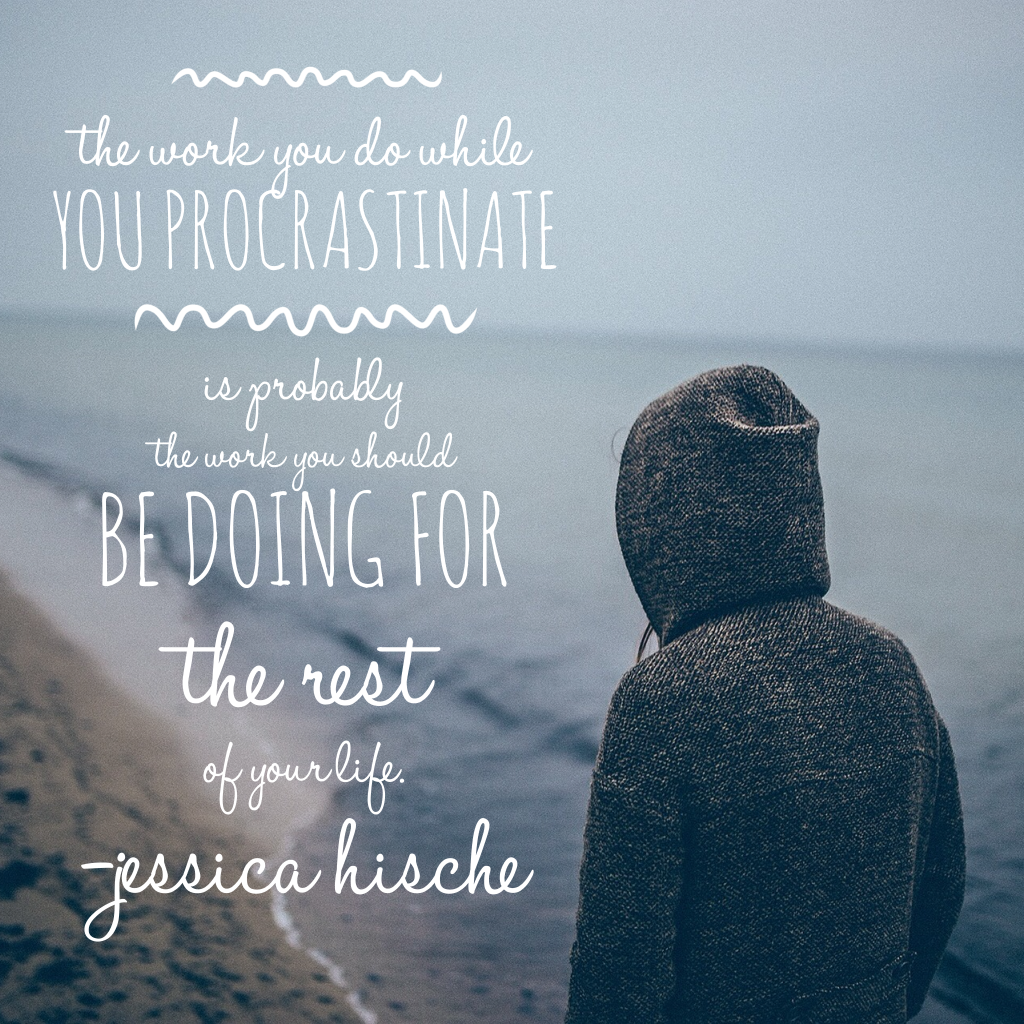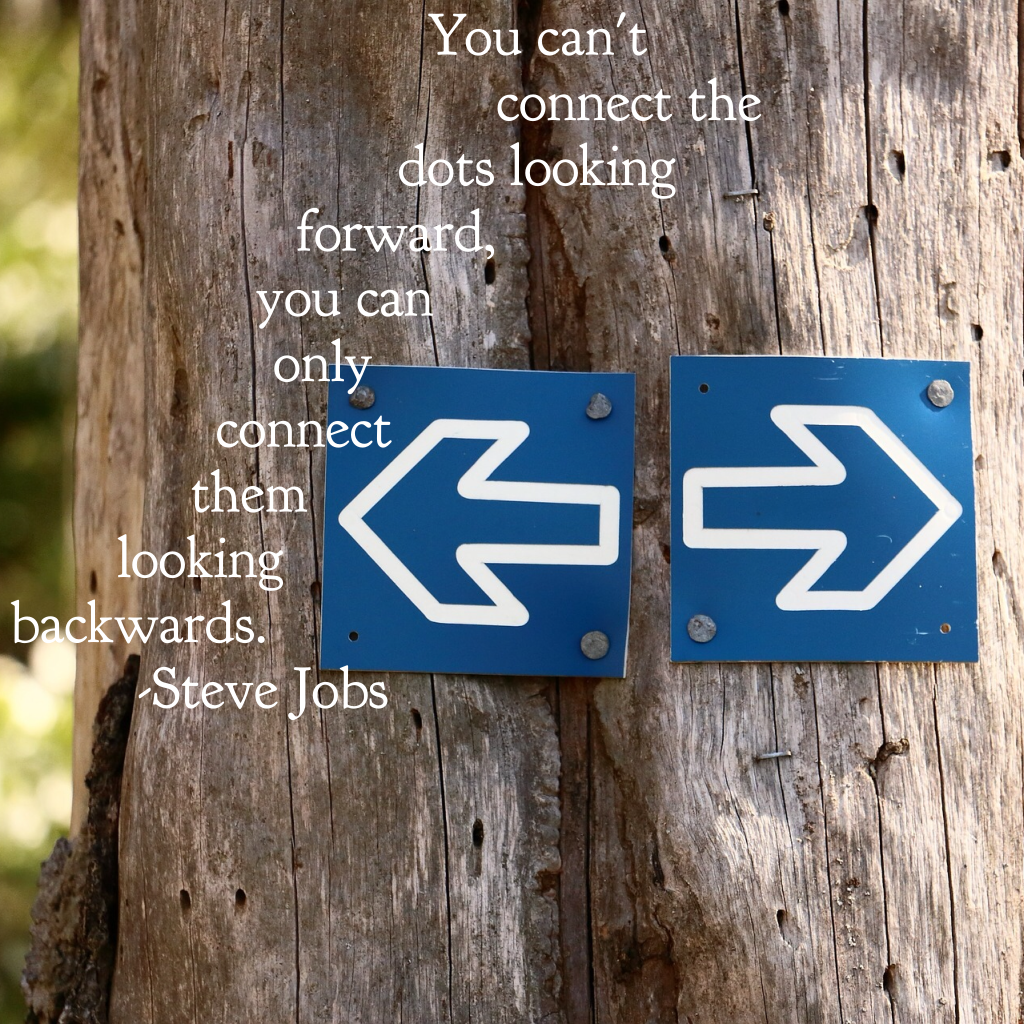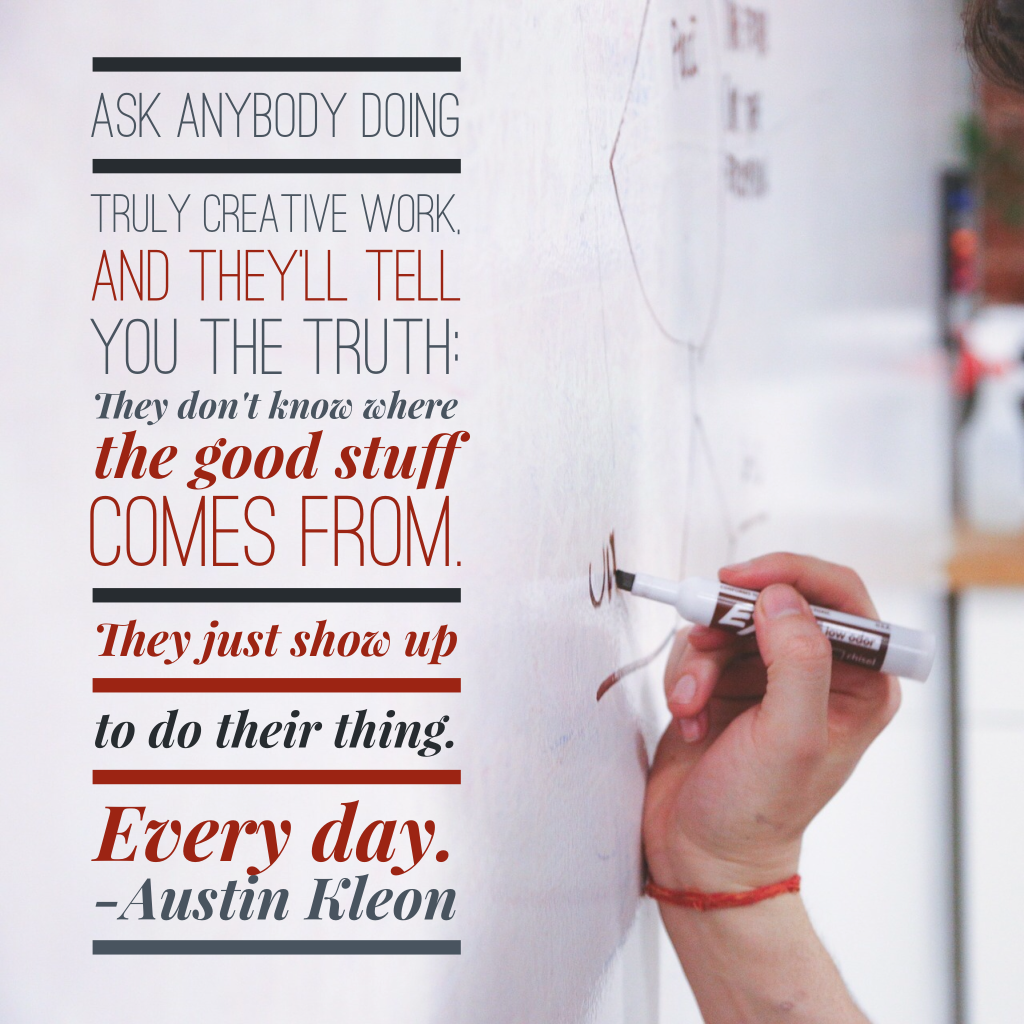When I considered starting the Four O’Clock Faculty blog, I was in the middle of reading a book by artist Austin Kleon called Show Your Work. The book details steps for those who consider themselves to be creatives to unleash their work on the world. This was the second book by Kleon that I read, following Steal Like An Artist, which detailed ways that artists find their creativity through all that has inspired them. I had been contemplating the blog for months, when after reading Show Your Work, it felt like the right moment. This image from the book pushed me over the edge, and caused me to take a leap:
I recently reread both books by Austin Kleon, and decided to write about nine statements and quotes from the books that have inspired my thinking about education:
Right now, I have 7 books on my nightstand, 5 more on my dresser, and 2 somewhere in the living room. These books represent my continual search for knowledge. We probably overuse the term lifelong learner in education. For those of us who ended up in this field, we find something just right about opening a new (or old) book. When we are able to pull information from that book, we can twist it into an idea that pushes us forward. Thank you, unread library, for your inspiration.
For all of us who think that we are not creative, John Cleese reminds us that creativity comes in the form of doing the work every day. Inspiration rarely hits us like a ton of bricks. It might come from the 14th failed idea, or the 27th idea combined with the 9th idea that we originally scrapped. For me, writing this blog has given me an opportunity to reflect upon my own learning. I try to write almost every day, and many days I don’t do anything with the thoughts that I write down. Usually, when I write enough, something worth writing about starts to appear. We must, as teachers and educators, show students how this creativity process works.
I’ve heard about teachers who pull out a file folder every year in September to find their lessons, as if the lessons should remain the same for 20 years. Each year, the students who walk through the door, have different wants, needs and abilities. It is up to us, as educators, to find that which will engage this year’s learners, not the lessons that worked in 1993, or worse yet, 1973. Some of the strategies that we utilized in 1973 or 1993 may work, but we must throw out old material to continue learning, to continue bringing our best for our students every day.
When you watch something grow a little bit every day, it doesn’t seem like it is growing. Any parent can attest to this when they realize they have a child of a certain age. The same goes for the work that happens in our classrooms on a daily basis. While you continue to motivate and engage learners a little bit each day, by the end of the year, they walk out as changed human beings, capable of amazing things. Keep taking those small steps, and providing support each day, and by the end of the year, you will have students who stand tall.
No one ever produced anything worthwhile without a little bit of mess. Sometimes, this process of messiness is the most important part. Giving students the ability to participate in the process, making mistakes, taking risks, and trying to figure it out, gives students an opportunity at greatness. Allow students to relish in the process, learning that the steps on the road to a goal are sometimes more important than the goal itself. Let students make mistakes, learn from those mistakes, and improve because of the process.
We are all, at some point, procrastinators. Even those who meet every deadline, have to sometime give in to working on something else. Some refer to this work as side projects or hobbies, but it is the other passions that we bring to education which help us to improve our craft. Some bring their love of photography into the classroom. Many bring their love of good literature into the classroom. Whatever you may bring to the classroom, remember that your passions make you who you are, and make you a better teacher at the same time.
When watching students try to master the craft of writing, one can quickly realize it is about the process of becoming a writer that is much more important than finished product. If you’ve ever witnessed a student who keeps a writer’s notebook go back to a selection that they wrote a week ago, they can make adjustments to improve their writing, which is better today than it was a week ago. It is not, however, better than it will be in a week’s time. Keep track of your work while you go. Reflect upon that work and improve. Make progress every day, but document that progress so that you know how to move forward.
Steve Jobs was an iconic visionary. He connected ideas. Many times, creativity is just that, the connection of two other ideas. Utilize that which you learned in your classroom yesterday to improve what happens in your classroom tomorrow. Help students to connect the dots as well, linking ideas across various disciplines and genres, from science and social studies, to math and language arts, infusing the arts across everything you do. Connect ideas and come up with something new, or at least, improve upon an old idea.
Final inspiration from Austin Kleon… Your work matters. You show up every day to make a difference in the lives of students. Do your thing every day. Even if it feels as if you are not making progress some days, you still are, even if it is small progress. Know that your students rely on you every day. For some, you are the influence that will help them to discover their creativity. For others, you are the person that will help them grow into a better person, caring and kind and loving. Make sure you show up every day to do your most important work.
Thank you to Austin Kleon, Steve Jobs, Jessica Hische, Kenneth Goldsmith, and John Cleese for the inspiration.
All quotes are from the Austin Kleon books, Steal Like An Artist and Show Your Work. Find them here.
By Rich Czyz
